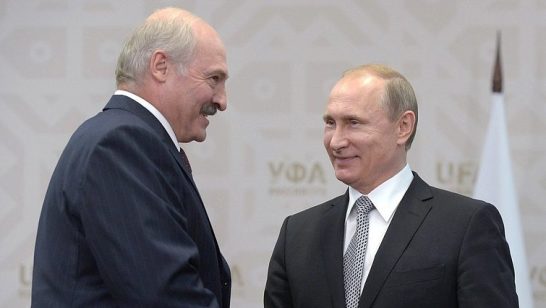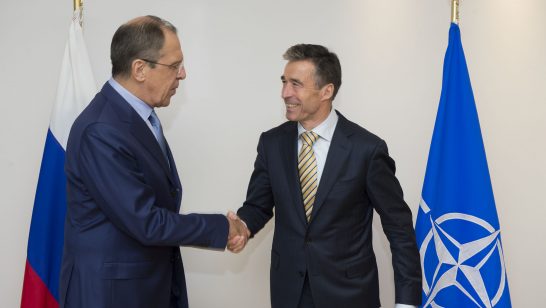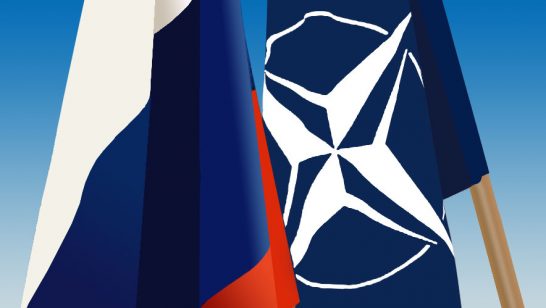
A year ago, ELN members joined US and European counterparts in a statement warning that Russia-NATO tensions had reached a dangerous new level, and needed urgent de-escalation measures including the re-establishment and reenergising of military-to-military dialogue channels. The situation was deemed to be worse than at any time since the Cold War.
One year later, it has deteriorated still further. Russia’s diplomatic mission to NATO has been suspended after NATO expelled diplomats it believed to be intelligence agents. Tensions are building around Ukraine, Belarus, the Black Sea and the Western Balkans. Credible commentators and a growing number of officials have warned of serious risks of war over Ukraine. Even if this is not intended, attempts to demonstrate power through military posturing, in a context of insecurity and disinformation, could lead to misjudgement and inadvertent escalation.
Given the deep concerns about the situation, ELN has sought insights from its network members across wider Europe, with a particular focus on rising tensions around Ukraine, and on the human trafficking crisis on Belarus’s border (covered in a separate piece). The authors have drawn on these contributions to prepare this commentary, but note that the conclusions are those of the authors and do not reflect a consensus view.
Even inside the Network, experienced observers have divergent views on the motives and calculations of key actors. This lack of credible transparency is a key risk factor, increasing the chances of dangerous miscalculations.
Assessing the situation
The fresh build-up of Russian forces on Ukraine’s border has prompted grave concerns about the potential for escalation, potentially to the point of full-blown war. One Ukrainian member of the Network advised that the current situation feels qualitatively different from the build-up of forces in April (which were then withdrawn), as it is combined with what they saw as greater Russian-inspired political destabilisation inside Ukraine, where the president has said he has evidence of a coup plot against him. Another saw a real possibility of a Russian invasion of Ukraine going far beyond the Donbas.
With Ukraine celebrating the thirtieth anniversary of its independence from the Soviet Union this year, its official defence strategy, adopted in March, formally set the objective of restoring its sovereignty over Crimea, annexed by Russia since 2014. Ukrainian president Volodymir Zelensky has faced internal pressures from nationalist critics who want him to set out a clearer plan to achieve this, and at the same time from pro-Russian factions who criticise him from the other side. Analyses of the international politics around Ukraine often overlook the extent to which domestic politics constrain Zelensky’s room for maneouvre.
Ukraine is both a source of Russia-NATO tensions and a victim of them. Russian narratives have portrayed continued Western support for Ukraine, notably the transfer of arms to Ukraine, as an attempt to menace Russia in its own backyard. While the Ukrainian government has sought a path to NATO membership, Russia’s stated goal is to prevent further eastward enlargement of NATO, and some observers think also to maintain a zone of influence around its own borders. One Russian member described Russia as seeking to establish clearer red lines.
Russia’s focus on NATO enlargement is reinforced by the Kremlin readout of the virtual call between Biden and Putin on 7th December, which inter alia stated that “Russia is seriously interested in obtaining reliable, legally fixed guarantees excluding the expansion of NATO in the eastern direction and the deployment of offensive strike weapons systems in the states adjacent to Russia,” echoing Putin’s 18th November speech to the Russian foreign ministry board.
However, Russia’s motives and objectives are not entirely clear and were the subject of different views from network members, who also noted Russia likely has multiple motives. The lack of transparency is further complicated by information warfare. All conflict situations involve a battle of narratives, which have only become more multi-layered since the proliferation of online communication channels. It is important that efforts to counter opposing narratives do not obscure the need to identify and understand genuinely different threat perceptions.
This in turn raises questions about the extent to which NATO should try to understand and address Russia’s fears about encroachment despite its suspicions that they are disingenuous. Attempts by NATO to support the sovereignty of a country that has already lost part of its territory to a Russian invasion are portrayed by Russia as a direct threat to its own security. If the Kremlin views Ukraine’s stated national security objective of recovering Crimea as a goal that is implicitly backed by Western countries, it may also see that as escalatory from its own standpoint. These views will be accepted by large parts of the Russian population and leadership.
However, some have taken the view that by massing troops on the border, Russia is seeking to obtain more political cards to play in talks with the US administration and the new German government. Thus, while de-escalation measures are an urgent priority, implementing them is complicated by the fear in some European countries that dialogue could appear to represent weakness or reward bad behaviour. Even among members of our Network, which is committed to mutual security and dialogue, support for the latter seems to be under strain among some non-Russian members. There is support, however, for finding a way forward and through, rather than simply settling into containment between two armed camps.
Principles for next steps
An effective response by NATO needs to seek to de-escalate the wider Russia-NATO tensions that are fuelling the pressures on Ukraine, but without fuelling any misperception that the US will use Ukraine as a bargaining chip in its broader relations with Russia.
Critical to this approach is the maintenance of support for Ukrainian sovereignty and for existing agreements and processes.
Dialogue between the US and Russia over Ukraine is welcome since the broader US-Russia and US-NATO relationships are evidently feeding into the tensions. It needs to be reinforced by a dialogue that includes Ukraine itself.
Additionally, members emphasised consistency with previous agreements and international law: continuing to support the Minsk Process, as well as working to implement initiatives agreed upon in negotiations in Paris and as part of the Normandy format.
A Ukrainian member suggested that the international community should strongly support Zelensky’s call for a bilateral Ukrainian-Russian dialogue at the leaders’ level. A barrier to this, however, is Russia’s position that it is not a party to the Ukraine conflict.
They further suggested that a wider dialogue about Ukraine could potentially be carried out in the framework of the Budapest Memoranda (where, this member notes, P5 powers promised to guarantee Ukraine’s security in return for it giving up its nuclear weapons in the 1990s). Ensuring the credibility of the Memoranda is also important for the wider nuclear non-proliferation regime.
The member suggested Ukraine could convene urgent consultations of the guarantor countries, possibly within the UNSC format, and should also urgently focus on the implementation of the Minsk agreement’s clauses on a sustainable ceasefire in Donbas.
Dialogue amid distrust
Overall, the degree of tensions make effective, purposeful diplomacy all the more necessary. Arguably strategic stability talks between the US and Russia should be intensified, with more frequent working-level contacts to identify confidence building measures and prevent further deterioration of relations, and should be complemented by structured dialogue between Russia and NATO, to ensure the European countries most affected are included.
Serious, purposeful communications and de-escalation channels face growing political barriers as relations become worse, yet it is precisely in times of crisis that they are most needed. This is a recurring issue in conflictual situations around the world and is often an obstacle to conflict resolution.
To remove this obstacle, diplomatic and military contacts urgently need to be prioritised in mutual self-interest and should not be confused with rewarding negative behaviours, a perception that threatens to rob foreign policy of essential diplomatic tools. Furthermore, the more these contacts are held in a regular and institutionalised manner, rather than being ad hoc responses to crises, the more they can be de-linked from perceptions that they are “rewarding escalation”.
Meanwhile Russia should take heed that if unaddressed, the deep tensions and distrust are likely to be “baked in” to emerging strategies with a long-term effect. There is a high chance that NATO’s forthcoming Strategic Concept, the EU’s Strategic Compass, and the outcomes of NPT RevCon will all be shaped by a high level of distrust and tension already seen in Russia’s recent national security strategy.
All of this creates an adverse environment for cooperation on the major global challenges that confront all our countries, most obviously climate change, global public health and economic recovery from the pandemic – with negative repercussions for economies and living standards across the world.
The opinions articulated above represent the views of the author(s) and do not necessarily reflect the position of the European Leadership Network or any of its members. The ELN’s aim is to encourage debates that will help develop Europe’s capacity to address the pressing foreign, defence, and security policy challenges of our time.
Image: Wikimedia Commons, Vitaly V. Kuzmin




